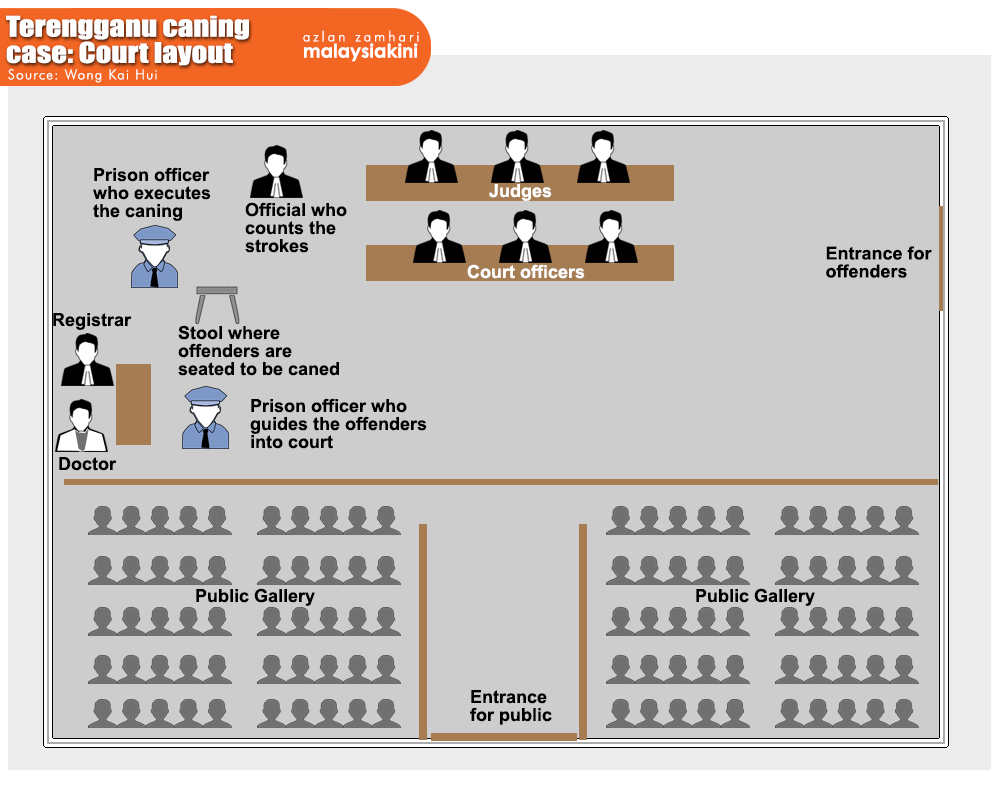The caning of two women in Terengganu today for attempting same-sex relationship is illegal, says rights group Sisters in Islam (SIS).
The group said the punishment contravened Section 289 of the Criminal Procedure Code, which prohibits corporal punishment against females.
"However, provisions under the syariah law allow women to be caned. These inconsistencies create confusion in the jurisdiction of the Prisons Department, thus directly affecting the rights of women in Malaysia protected by Article 8(2) of the Federal Constitution against gender discrimination," SIS said.
Moreover, the Prisons Act 1955 and Prison Regulations 2000 stipulate that caning can only be carried out against prisoners and that in the case of the two females, they were not prisoners when the sentence was carried out, SIS added.
The Prison Act 1995 defines a prisoner as "a person, whether convicted or not, under confinement in a prison and in relation to a convicted prisoner, includes a prisoner released on parole".

SIS said the execution of the sentence today raised questions as to who authorised the caning, who carried it out and whether the Home Ministry, which oversees the Prisons Department, had consented to it.
Meanwhile, in a separate statement, Wanita MCA chief Heng Seai Kie raised much of the same legal arguments while also pointing to Sub-regulation 132(1) of the Prison Regulations.
It states: “Any punishment lawfully imposed on a prisoner may be carried out in any prison, or partly in one prison and partly in another.”
“MCA has consistently raised concerns that the implementation of hudud enactments will encroach into the civil sphere and are thus unconstitutional.
“This latest public caning and shaming in Terengganu under the PAS government is another example of unconstitutional punishments,” she added.
The two women were caught by Terengganu's Islamic authorities in April while in a car. They pleaded guilty to a charge of attempting same-sex relations and were handed the whipping sentence and a fine of RM3,300 on Aug 12.

